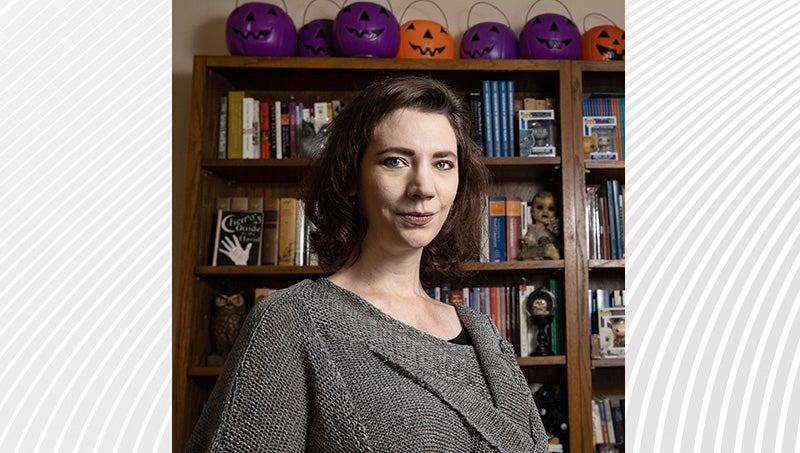Coronavirus conspiracy theories are nothing new
Published 7:19 pm Tuesday, March 10, 2020

- Dr. Andrea Kitta, East Carolina University associate professor of English (ECU photo by Rhett Butler)
|
Getting your Trinity Audio player ready...
|
GREENVILLE — Dr. Andrea Kitta, associate professor of English at East Carolina University, is a folklorist specializing in medicine, belief and the supernatural. Her book, “The Kiss of Death: Contagion, Contamination, and Folklore,” sheds light on how information and misinformation spread during an outbreak like COVID-19.
“All of these things happen every single time there’s a crisis,” she said. “It’s just a matter of details.”
When faced with a life-threatening disease, people crave information, she said, and right now there are a lot of unknowns about the coronavirus. It’s all too easy for misinformation or conspiracy thinking to fill those gaps.
“Some people out there really want good information and instead find conspiracy thinking,” she said. “It all makes so much sense when you see the complete picture. This is something the larger, more complicated conspiracy theories like to do. They tie up all the loose ends in a way where everything works together and makes sense.
“Life is messy and just doesn’t work like that.”
Kitta said the themes that have sprung up during the current outbreak are predictable.
“People are going to claim a common household item can cure this (this time it’s bleach, other times it’s been garlic or boiling water),” she said. “People are going to blame a group of people and try to find a patient zero, both because of general internalized xenophobia and because if they can see what patient zero did, they can just not do that.
“Plus it gives them an object of blame. It’s easier to cope when you can just blame someone else.”
These narrative patterns are identical to past epidemics, Kitta explained.
People look for information that makes sense from a lay perspective, which can lead to flawed thinking like wondering why there isn’t a vaccine yet, which comes from a misunderstanding of how vaccines are produced and tested; or why antibiotics won’t work in fighting the virus, she said.
“There are going to be stories of tragic deaths and unexpected recoveries,” Kitta said. “Tales of warning. It’s all very predictable; just the details change.”
“The Kiss of Death: Contagion, Contamination, and Folklore” was published in October 2019.





